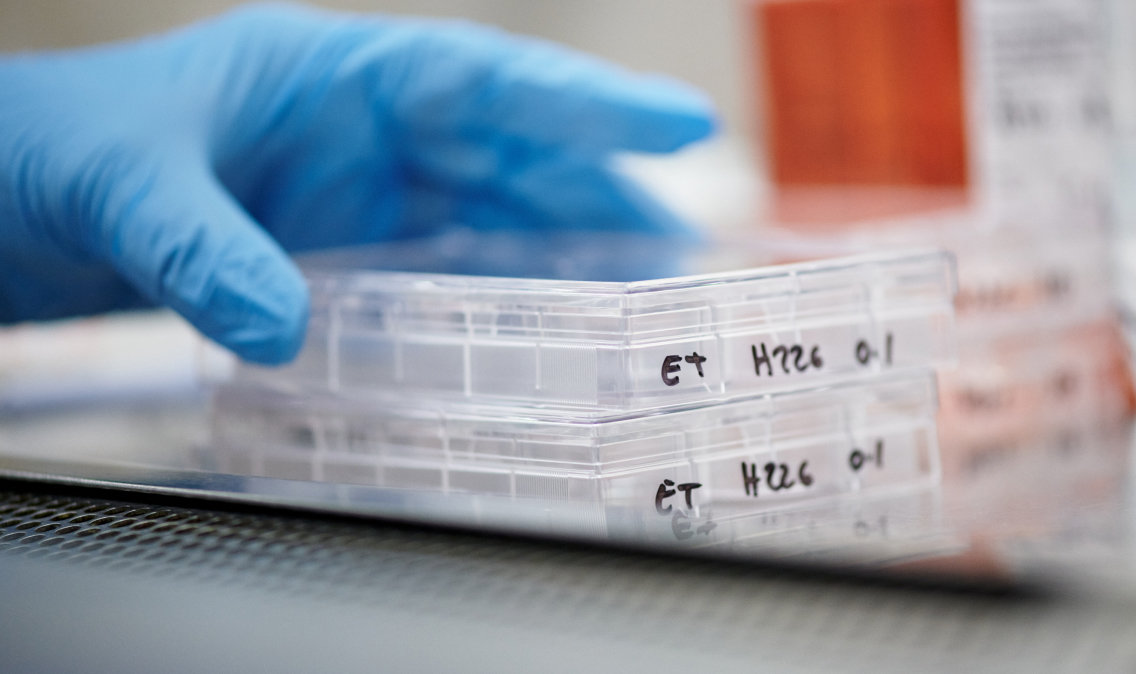Our impact
Cancer Research Horizons exists to ensure that new discoveries and insights from research ultimately end up helping people with cancer. In this section, we provide some examples of recent developments.
Continue
Our year in numbers
800+
meetings
470+
researchers
45
patents filed
118+
invention disclosures
7
new equity holdings in startups
106
commercial deals signed
£79m
total gross income
£22m
reinvested in Cancer Research UK
1 in 10 treatments or the equivalent of over six million courses* of treatment enabled worldwide through Cancer Research UK-funded research
*This global figure was calculated using commercially available drug-prescription datasets provided by IQVIA, as well as published drug dosing studies, for nine drugs Cancer Research Horizons has had a direct hand in helping to bring to market: dexrazoxane, vismodegib, abiraterone, temozolomide, rucaparib, olaparib, erdafitinib, etoposide and pemetrexed. The patent on abiraterone expired in October 2022.
Therapeutic Innovation

News: taking breast cancer treatment one step further
In October 2022, AstraZeneca reported positive results from CAPItello-291 Phase 3 clinical trial for the cancer drug capivasertib, a first-in-class therapeutic derived from a collaborative drug discovery programme between AstraZeneca, Astex Pharmaceuticals, the Institute of Cancer Research, and Cancer Research Horizons. The clinical trial success moves a much-needed new therapeutic option one step closer to reaching breast cancer patients who suffer a recurrence or disease progression following endocrine therapy.
Capivasterib targets protein kinase B (PKB), also known as AKT, an enzyme associated with the hallmark characteristics of a cancer cell including the promotion of survival and growth, cell proliferation and migration, and even angiogenesis.
Hormone receptor status directly influences the number of treatment options available to breast cancer patients. Trial participants demonstrated hormone receptor positive and human epidermal receptor 2 (HER2) negative, a genetic disposition associated with 70% of the breast cancer population. Broadening the therapeutics options for these patients, capivasterib is the first clinical asset to reach Phase 3 from a dedicated discovery platform for developing and commercialising novel small molecule inhibitors of PKB to use as anti-cancer agents.
Trial participants received either capivasterib in combination with Faslodex (fulvestrant), a standard treatment for metastatic breast cancer or Faslodex and placebo. The trial demonstrated a statistically significant improvement in progression-free survival in the group of patients treated with capivasterib, in comparison to the placebo group.
